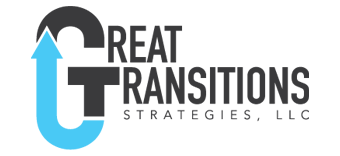Pick an incident in your workplace where you personally know someone, maybe you, who suffered negative consequences for speaking the truth.
Need a few high profile reminders: Al McDonald who recommended not to launch the space shuttle Challenger, Jessie Guitron uncovered fraud at Wells Fargo, Cynthia Cooper uncovered the WorldCom accounting fraud scheme, and Karin Silkwood, reported violations at a nuclear power plant.
If truthfulness and moral courage are such revered virtues, how come we have stories of threats, retribution, and having to tell the truth anonymously? Why did Congress have to create the WhistleBlower Protection Act in 2010?
Is there a truth you have wanted to speak about in the workplace but held back for fear of negative consequences? Some are around candid feedback, adhering to social norms, or not wanting to offend someone. What holds us back if truthfulness is so important?
Maybe more importantly, what is it that allows individuals to face their fears and act?
Moral Courage.
Martin Seligman calls it Moral Bravery, the force that “compels or allows an individual to do what he or she believes is right, despite fear of social or economic consequences.”
List the fears that have held you back from speaking the truth. Here is a short list; fear of not receiving a bonus, public embarrassment, loss of a friendship, loss of an opportunity, loss of money, social standing, ridicule, or being ostracized, are a few.
An additional consideration is the longevity of the negative consequences for being morally courageous. Speaking the truth can have lasting negative effects.
Do you have individuals in the organization you lead holding back truth? I would say we don’t know for sure, but probably. That leads to the next question.
How do you develop, enhance, and enrich moral courage in the organization you lead?
My opinion; when individuals are driven so far out of alignment with their values that they cannot stand it anymore they come forward. They can no longer live with themselves allowing this misalignment to occur.
The negative consequences no longer outweigh the burden on their conscience of failing to correct the wrong. Remember how Seligman defined moral courage; the force that
“compels or allows an individual to do what he or she believes is right.”
They can no longer bear to witness the wrong and take action in the face of known consequences.
In short, moral courage is the expression of one’s values.
Therefore, if you want an environment that supports individuals speaking the truth; educate, practice, and model values that support and reward, truth and transparency at every level.
Peter Drucker said “Culture eats strategy for lunch.” Positive and negative culture.
Examining the marquee cases, we see the whistleblower’s actions as herculean. Making a decision that few were willing to make. What if the organizational cultures expected and rewarded individuals for highlighting concerns? Those issues would have never grown to significant proportions because the culture made it easy to say something.
The culture of these organizations allowed major issues to occur. The whistleblower was not the only person who saw the problem. They may have been the only person to highlight the problem.
What does your organization value? Does it value individuals who speak up and challenge each other? What behavior gets rewarded? On a scale of 1-10 grade the level of transparency. What issues are you reluctant to shed light on?
What is the message from the above answers?
Little things make the big things happen. Assess yourself and your organization. What is it about your culture that makes you and others feel uncomfortable? Identify the little problems within a culture and you should be able to predict the next big problem.






